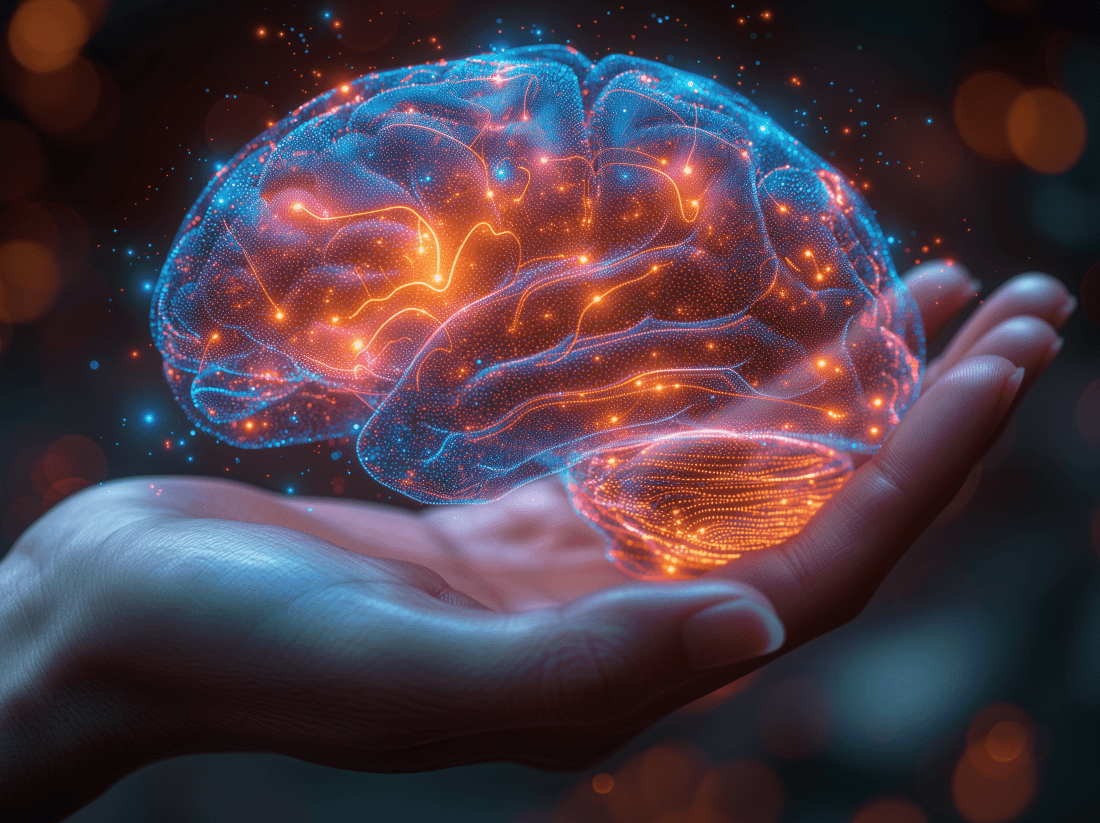There are many ways in which CBD affects the brain. This naturally occurring cannabinoid from cannabis sativa is renowned for its calming, anxiolytic and mood-improving effects on the mind. Yet these effects all occur without it getting you ‘high’ like THC.
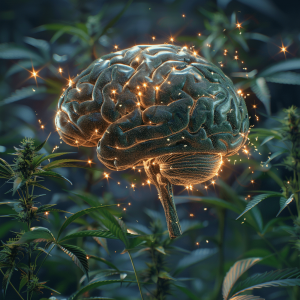
The ways CBD works in the brain are varied and complex. It interacts with a range of brain receptor types, modulating different neurotransmitters. For example, research has demonstrated CBD’s abilities to modulate serotonin, GABA, glutamate, vanilloid, adenosine and CB1 cannabinoid receptors.
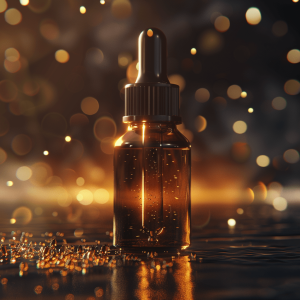
In addition, it may interact indirectly with the dopamine system. CBD’s ability to support, normalise, and balance brain chemicals across these receptors underlies its powerful mental benefits. Because of its brain interactions, CBD stimulates neuroprotective, anti-neuroinflammatory, and neurogenesis in the brain’s cells.

Let’s examine how CBD affects the brain. We’ll review its activity across the brain receptors and why this matters.
Contents
Understanding CBD and The Brain
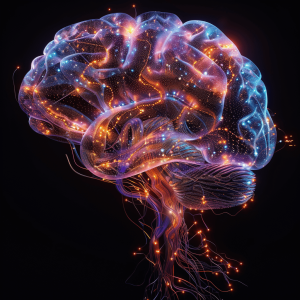
To understand CBD’s brain effects, you must first understand the endocannabinoid system and what brain receptors and neurotransmitters are.
Endocannabinoid System

The brain contains several essential links to the body’s endocannabinoid system (ECS). This system plays a regulatory role, helping to maintain a stable, well-regulated state within the brain, CNS, and body. Within the brain, the ECS plays a vital role in the control of many neurological pathways. These include memory, learning, pain sensation, circadian rhythm, and mood.
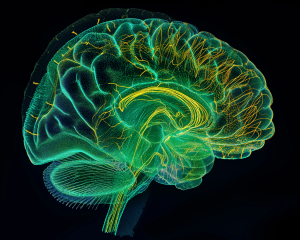
Cannabinoids like CBD bind to the system via cannabinoid receptors. Receptors of the ECS in the brain and CNS are known as type 1 or ‘CB1’. These are found across all brain regions but concentrated in the limbic system (‘reptilian brain’). This section of the brain controls stress, sleep, hunger and emotion. For instance, the highest quantities of CB1 receptor types are located in the hypothalamus, hippocampus, and amygdala (parts of the limbic system). Most of CBD’s interactions with these brain receptors aren’t direct. We’ll return to how CBD functions in the brain shortly.
Brain Receptors and Neurotransmitters
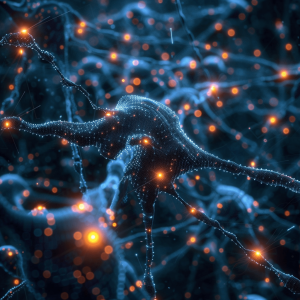
Our brains run on neurons or cells, regulated via a complex, interrelated system of (brain) receptors and chemical transmitters.
- Brain receptors are proteins with sites in which enzymes or brain chemicals can bind. They are located on neurons and alter neuron activity when modulated or activated.
- Neurotransmitters, in contrast, are the chemical signals the brain uses in conjunction with brain (neurotransmitter) receptors to control brain activity. Most neurotransmitters are amino acids. The brain secretes them, after which they traverse its pathways to ‘message’ between neurons. These chemical messages can trigger inhibitory or excitatory neuron firing, depending on the types involved. These intricate chemical reactions control all our thoughts, nervous system signals, impulses, feelings, and mental states.
With these brain structures in mind, let’s delve into CBD’s function across each.
How CBD Affects the Brain
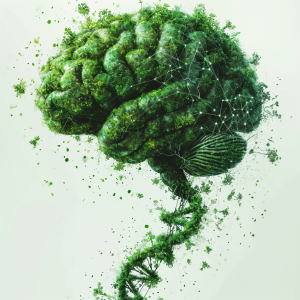
CBD affects the brain in a range of ways. These mechanisms occur via the endocannabinoid system and direct or indirect brain receptor interactions. Let’s run through each of these receptor interactions and how they work.
CB1 Cannabinoid Receptors
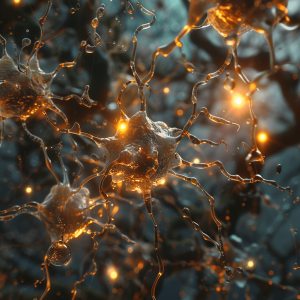
The most well-known way in which CBD affects the brain is via its CB1 receptor interactions. While CBD binds directly with the CB2 cannabinoid receptor type in the body, it doesn’t do so with CB1 receptors. Instead, CBD modulates the CB1 receptors indirectly. Because of its milder, indirect interactions with CB1 receptors, the mental effects of CBD are distinct from THC.

THC binds to these receptor types directly and powerfully. This is why THC from cannabis will get you ‘high’ or stimulate cognitive and perception changes, while CBD won’t. It’s a significant factor behind the comparative mental safety of CBD in the brain. Unlike THC, it can’t cause mental illnesses, psychosis, addiction or depression, which is a huge advantage.
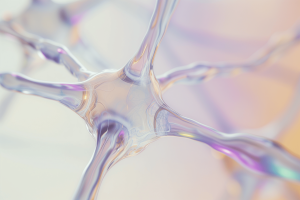
When it stimulates the CB1 receptors, CBD causes the brain to secrete endocannabinoids from the ECS. Anandamide and 2-AG are the primary endocannabinoids with a range of neurological benefits. They work in the brain by modulating neurotransmitter signalling, improving the function of neurons and preventing them from misfiring.
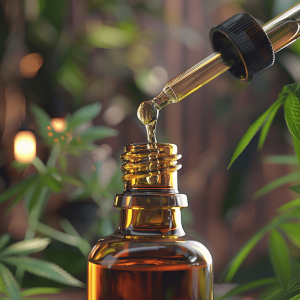
Endocannabinoids also protect brain cells and defend them from damage. These neuroprotective effects are how CBD prevents brain conditions like epilepsy and neurodegenerative conditions. In addition, anandamide and 2-AG aid with cognitive processes such as mood regulation, circadian rhythm, memory function, learning and appetite.
Beyond the endocannabinoid system’s CB1 receptors, more research has shown that CBD can bind with or alter the activity of brain receptors directly.
Serotonin Receptors
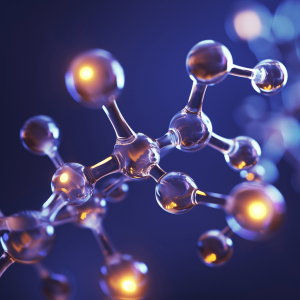
Another brain receptor type that CBD can act on is the 5-HT1A serotonin receptor. Serotonin is the neurotransmitter that controls memory, learning, mood, sleep and digestion. Research has revealed that CBD can modulate serotonin receptors. This contributes to its ability to reduce stress and calm anxiety. It’s also why CBD is so effective for improving mood. Scientists have found the cannabinoid has properties similar to anti-depressants, improving serotonin reuptake to prevent mood dysregulation.

Another way CBD alters serotonin levels is by inhibiting the tryptophan amino acid from degrading in the brain. Tryptophan is the precursor to serotonin. The body uses it to synthesise serotonin, which mainly occurs in the gut. These connections between the gut and serotonin are why gut health significantly impacts overall mental well-being. Once secreted in the stomach, serotonin is transported to the brain, which can be used in its receptors. Studies have revealed that CBD can modulate tryptophan activity. Specifically, CBD mitigated the degradation of tryptophan, which boosts its levels.
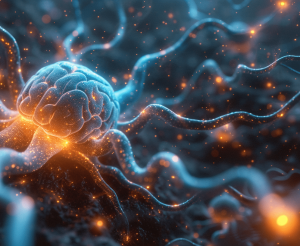
When this occurs, the extra tryptophan changes the production and regulation of serotonin, promoting its levels in the brain. Similarly, CBD possesses properties that enable it to inhibit serotonin reuptake. These effects function along similar pathways to SSRIs (serotonin reuptake inhibitors), making them effective at mitigating depression, mood imbalances and anxiousness. By promoting increased serotonin synthesis and control through altering tryptophan levels, CBD can help address a range of issues, including mood, sadness, anxiety, and appetite.
GABA Receptors

Another way CBD affects the brain is via its GABA interactions. GABA is an amino acid called Gamma-aminobutyric acid, which inhibits (suppresses) the activity of other neurotransmitters. It functions in the brain and body as a ‘calming’ chemical, reducing heightened anxiety, lowering blood pressure, boosting mood, and aiding calmness. Moreover, its capacity to block brain neuron’ excitation’ means it works as an anti-spasmodic, reducing muscle spasms and nerve dysregulation. Research on CBD has indicated it can modulate GABA receptors. This may contribute to the cannabinoid’s calming, anxiolytic properties. Some researchers have compared it to the effects of benzodiazepines or Prozac, albeit much milder.

Due to altering GABA transmission, research suggests CBD could represent a novel remedy for mood disorders and depressive symptoms. It’s also the anti-spasm GABA pathways that enable CBD to work as a suppressant of epilepsy and seizures. Normalising GABA activity is critical to the anti-epileptic effects of CBD. These effects are so powerful that CBD has been concentrated into spray-based anti-seizure medications like Epidiolex. Studies have shown that cannabinoids can reduce the strength of seizures, as well as how often they occur. Promoting GABA synthesis enhances inhibition in neuron firing. This minimises the hyperexcitability that triggers seizures. It’s a fundamental way in which CBD works for the brain, helping to prevent brain function dysregulation.
Glutamate Receptors
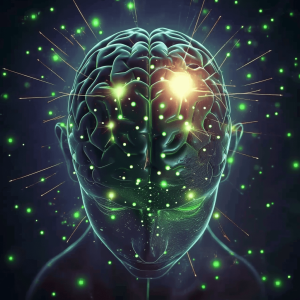
Another neurotransmitter CBD works with is glutamate. This excitatory neurotransmitter is found across the brain. It supports the regulation of mood, learning, memory, and sleep. Excessive glutamate activity can cause problems due to its excitatory effects. In severe cases, it can cause neurotoxicity or damage brain cells themselves because of excitotoxicity. This is where neurons fire or activate too much, becoming overwhelmed and malfunctioning. Preventing this through healthy glutamate is a way in which CBD helps with brain health.
Vanilloid Pain Receptors

In the brain, CBD also acts on the TRPV1 pain receptors. These are the primary receptors regulating pain, body temperature, and inflammation. They control how pain, heat (thermoregulation), or inflammation is signalled and how it is sensed or perceived. Research has demonstrated that CBD stimulates TRPV1 inhibition by regulating calcium signalling molecules such as adenylyl cyclase. This inhibitory effect on the brain’s pain receptors is how the cannabinoid helps reduce the impact of aches, pains, and inflammation.

CBD also affects the cAMP pathway in the central nervous system. The cAMP pathway is vital because it mediates or signals pain sensations between the nervous system and the brain. Inhibiting it has been observed to impact both acute and chronic pain positively. This is a crucial way CBD can prevent pain from being communicated between nerve cells. This works to alleviate pain and reduce discomfort caused by it. Australian medical researchers have conducted studies on this effect. It’s proven that many of the analgesic effects of CBD are via the brain’s pain receptors and central nervous system pain signal suppression.
Adenosine Receptors
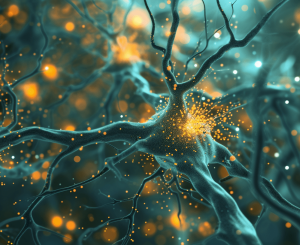
CBD also works on adenosine in the brain. This neurotransmitter is a crucial regulator of cardiovascular function (vasodilation) and sleep or circadian rhythm. It builds up in the brain during the day and tells the brain when to sleep at night. Healthy adenosine levels are associated with better circulatory function, brain oxygen supply, and reduced bodily inflammation.
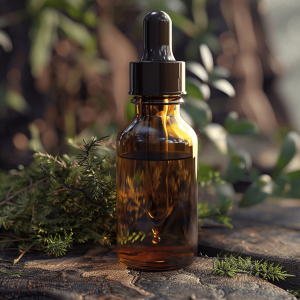
CBD functions as an adenosine reuptake blocker. Preventing its reuptake increases adenosine concentrations in the brain, assisting with the function of A2A adenosine receptors. Supporting the function of adenosine receptors and their signalling has beneficial implications for a range of physiological areas. It’s an essential way CBD’s effects on the brain help with sleep, cardiovascular health and mood. These adenosine interactions could be one of the underlying reasons that CBD helps with vasodilation, circulation, and blood pressure reductions.
Dopamine Effects

A lesser-known neurotransmitter that CBD helps regulate is dopamine. The dopamine neurotransmitter controls all facets of brain behaviour, motivation and reward. Notably, CBD doesn’t modulate or act on dopamine receptors directly. This means it can’t cause addiction or dependence. It’s a critical distinction between CBD and THC, as THC can act on the dopamine system. Instead, CBD indirectly affects dopamine levels.

By altering dopamine levels, CBD has shown the potential to provide benefits for individuals with ADHD, executive dysfunction and addiction (substance use) disorders. The cannabinoid works by bringing dopamine levels into normal ranges and helping to prevent dysregulated reward triggers. For example, CBD can reduce cravings among people with addictions. It inhibits addictive cue sensations in the brain through dopamine modulation. This indirect effect on dopamine levels is a promising avenue for further research into CBD for ADHD and addiction treatments.
Conclusion

CBD affects the brain in multifaceted, complex ways. Overall, these effects are very positive and stabilising for brain health. In the brain, CBD helps to normalise neurotransmitter levels, promotes healthy neuron function, and prevents dysregulation across the brain regions. It can work in the brain via the endocannabinoid system and various neurotransmitter receptor types.
Science has now proven these effects and revealed more of CBD’s mechanisms in the brain. The cannabinoid has demonstrated the capacity to modulate numerous brain receptors, including the CB1 cannabinoid, serotonin, GABA, glutamate, vanilloid, and adenosine receptors. Its modulation of these receptor types is why CBD aids with various neurological and cognitive health facets. These pathways enable CBD to reduce anxiety, mitigate depression, prevent epilepsy, lower stress, boost mood, and enhance neuron function.
References
- Navarrete, F., García-Gutiérrez, M.S., Gasparyan, A., Austrich-Olivares, A. and Manzanares, J. (2021). Role of Cannabidiol in the Therapeutic Intervention for Substance Use Disorders. Frontiers in Pharmacology, 12. https://www.ncbi.nlm.nih.gov/pmc/articles/PMC8173061/
- henderson, L. (2021b). Medicinal Cannabis in the Treatment of Chronic Pain. [online] Australian Journal of General Practice. Available at: https://www1.racgp.org.au/ajgp/2021/october/medicinal-cannabis.
- Costa, B., Giagnoni, G., Franke, C., Trovato, A.E. and Colleoni, M. (2004). Vanilloid TRPV1 receptor mediates the antihyperalgesic effect of the nonpsychoactive cannabinoid, cannabidiol, in a rat model of acute inflammation. British Journal of Pharmacology, 143(2), pp.247–250. https://www.ncbi.nlm.nih.gov/pmc/articles/PMC1575333/
- Pinto, J.V., Saraf, G., Frysch, C., Vigo, D., Keramatian, K., Chakrabarty, T., Lam, R.W., Kauer-Sant’Anna, M. and Yatham, L.N. (2019). Cannabidiol as a Treatment for Mood Disorders: A Systematic Review: Le cannabidiol comme traitement des troubles de l’humeur: une revue systématique. The Canadian Journal of Psychiatry, 65(4), pp.213–227. https://www.ncbi.nlm.nih.gov/pmc/articles/PMC7385425/
- Pretzsch, C.M., Freyberg, J., Voinescu, B., Lythgoe, D., Horder, J., Mendez, M.A., Wichers, R., Ajram, L., Ivin, G., Heasman, M., Edden, R.A.E., Williams, S., Murphy, D.G.M., Daly, E. and McAlonan, G.M. (2019). Effects of cannabidiol on brain excitation and inhibition systems; a randomised placebo-controlled single dose trial during magnetic resonance spectroscopy in adults with and without autism spectrum disorder. Neuropsychopharmacology, [online] 44(8), pp.1398–1405. https://www.nature.com/articles/s41386-019-0333-8#:~:text=Across%20groups%2C%20CBD%20increased%20subcortical,systems%20respond%20differently%20in%20ASD.
- Sadaka, A.H., Ozuna, A.G., Ortiz, R.J., Kulkarni, P., Johnson, C.T., Bradshaw, H.B., Cushing, B.S., Li, A.-L., Hohmann, A.G. and Ferris, C.F. (2021). Cannabidiol has a unique effect on global brain activity: a pharmacological, functional MRI study in awake mice. Journal of Translational Medicine, 19(1). https://translational-medicine.biomedcentral.com/articles/10.1186/s12967-021-02891-6
- Jenny, M., Schröcksnadel, S., Überall, F. and Fuchs, D. (2010b). The Potential Role of Cannabinoids in Modulating Serotonergic Signaling by Their Influence on Tryptophan Metabolism. Pharmaceuticals, 3(8), pp.2647–2660. https://www.ncbi.nlm.nih.gov/pmc/articles/PMC4033942/#:~:text=Notably%2C%20CBD%20was%20about%202,doses%20of%200.1%20%C2%B5g%2FmL.
- Zlebnik, N.E. and Cheer, J.F. (2016). Beyond the CB1 Receptor: Is Cannabidiol the Answer for Disorders of Motivation? Annual Review of Neuroscience, 39(1), pp.1–17. https://www.ncbi.nlm.nih.gov/pmc/articles/PMC5818147/#:~:text=Unlike%20%CE%949%2Dtetrahydrocannabinol%20(THC,a%20role%20in%20psychiatric%20disorders.
- Seeman, P. (2016). Cannabidiol is a partial agonist at dopamine D2High receptors, predicting its antipsychotic clinical dose. Translational Psychiatry, 6(10), pp.e920–e920. https://www.ncbi.nlm.nih.gov/pmc/articles/PMC5315552/#:~:text=It%20was%20found%20that%20cannabidiol,antipsychotic%20drug%20such%20as%20aripiprazole.
- Mechoulam, R. and Parker, L.A. (2013). The endocannabinoid system and the brain. Annual review of psychology, [online] 64(1), pp.21–47. https://www.annualreviews.org/doi/abs/10.1146/annurev-psych-113011-143739
- www.facebook.com/lifeboostlivebetter (2017). 5 Ways CBD Affects Your Brain. [online] LifeBoost. Available at: https://lifeboostmd.com/medical-marijuana/5-ways-cbd-affects-your-brain/#:~:text=CBD%20stops%20the%20brain%20mechanisms.
- Johnson, D. (2022). How CBD impacts the brain. [online] Maddyness UK. Available at: https://www.maddyness.com/uk/2022/01/26/how-cbd-impacts-the-brain/
